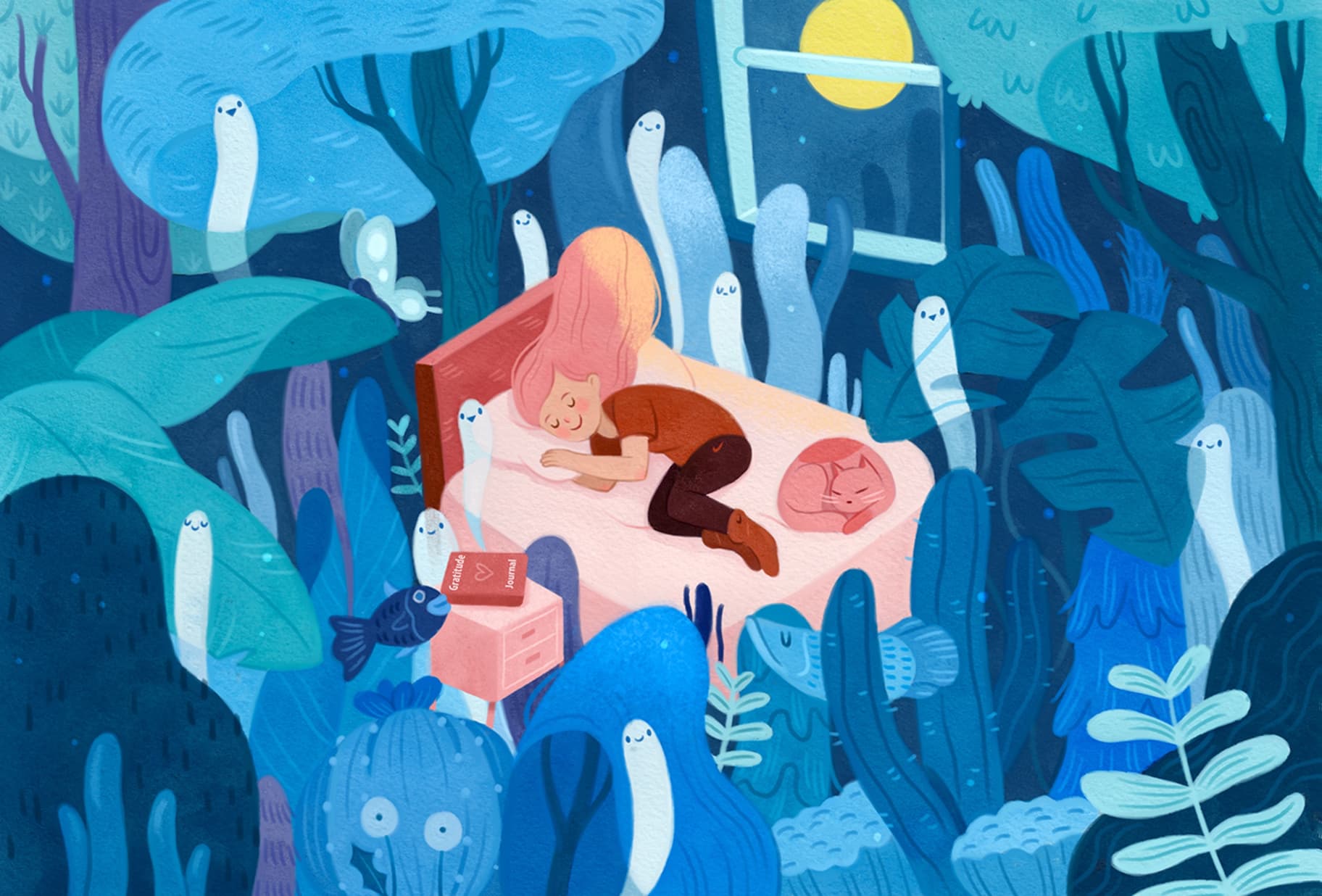How to Trick Your Brain Into Better Sleep
Coaching
Your bedroom is pitch black and cool. You haven't looked at your phone in an hour. Your last sip of coffee was well before noon. You're doing everything right, so why can't you pass out already? The answer may be in your head.

By that, we're talking about perspective. In general, people are either more optimistic or more pessimistic. And new research suggests this inclination doesn't just affect you on a conscious level. It might predetermine how well you sleep too.
In a study published in the 'Journal of Behavioral Medicine', more than 3500 adults were asked to take a survey that uncovered their view on the world, then complete a self-assessment of their sleep. Researchers found that those who ranked higher on the optimism scale tended to rate the quality of their rest as fairly or very good, considering factors such as how quickly they conked out, how much they tossed and turned, and how many hours they logged. This aligns with what we already know about outlook: Optimistic people tend to expect and report better outcomes from any situation.
But the research team believed there was more to it than that. They wondered: Do optimistic people feel better about life and thus have an easier time coping and shutting off at night? Or is it that getting sufficient rest makes you feel good and therefore more optimistic?
To find out, the team followed up five years later and asked the same group of participants to repeat the experiment. Those who had previously scored high for optimism but low on sleep quality were more likely to report improved sleep this time around versus those who were pessimists. In other words, because their sleep rating changed when their attitude didn't, researchers could conclude that a sunny outlook is an important factor for turning so-so sleep into sweet, sweet Z's.

Of course, there's no question that being fully rested helps your headspace. It works both ways, says study author Rosalba Hernandez, PhD, an associate professor in the School of Social Work at the University of Illinois at Urbana-Champaign. "The more sleep you get, that's going to benefit your emotional well-being and physical health"
.
What's more, the whole cycle seems to be truly mind over matter: Just because you believe you slept poorly doesn't mean you actually did. In Hernandez's first study, sleep was only self-assessed, meaning that people rated their own to come up with a score. But during her second study, when her team also looked at participants' actual sleep using a small device that measures movement during the night, things weren't so cut and dry. The researchers noticed that some self-professed bad sleepers actually got decent sleep. So a pessimist who thinks they're not sleeping well could actually have been dozing peacefully all night.
What's all this mean? "The way you think you slept matters more than how you actually slept", says Christopher Winter, MD, a neurologist who specialises in sleep for pro athletes. Training yourself to believe you slept better than you did—by focusing on, say, the three uninterrupted hours you got between 3 and 6 am versus the broken ones on either end of that stretch—might help you feel more well-rested. Not to mention, this silver-lining approach reinforces an optimistic mindset, which you now know can help you for future sleeps.
A pessimist who thinks they're not sleeping well could actually have been dozing peacefully all night.
Rosalba Hernandez, PhD, an associate professor in the School of Social Work at the University of Illinois at Urbana-Champaign
If an upbeat disposition doesn't come naturally to you, rest assured you can work on it. Small behaviours can help us feel more positive, says Hernandez. For example: Write down three good things that happened to you today, no matter how small; research suggests this can calm your mind and put you in a better place for sleep. Or find time during the day to focus on gratitude by texting a friend or family member to thank them for something. And practise acts of kindness by volunteering or even helping out someone you live with. If kindness is contagious, maybe good sleep is too. And if it's not? Hey, at least that's an optimistic thought.